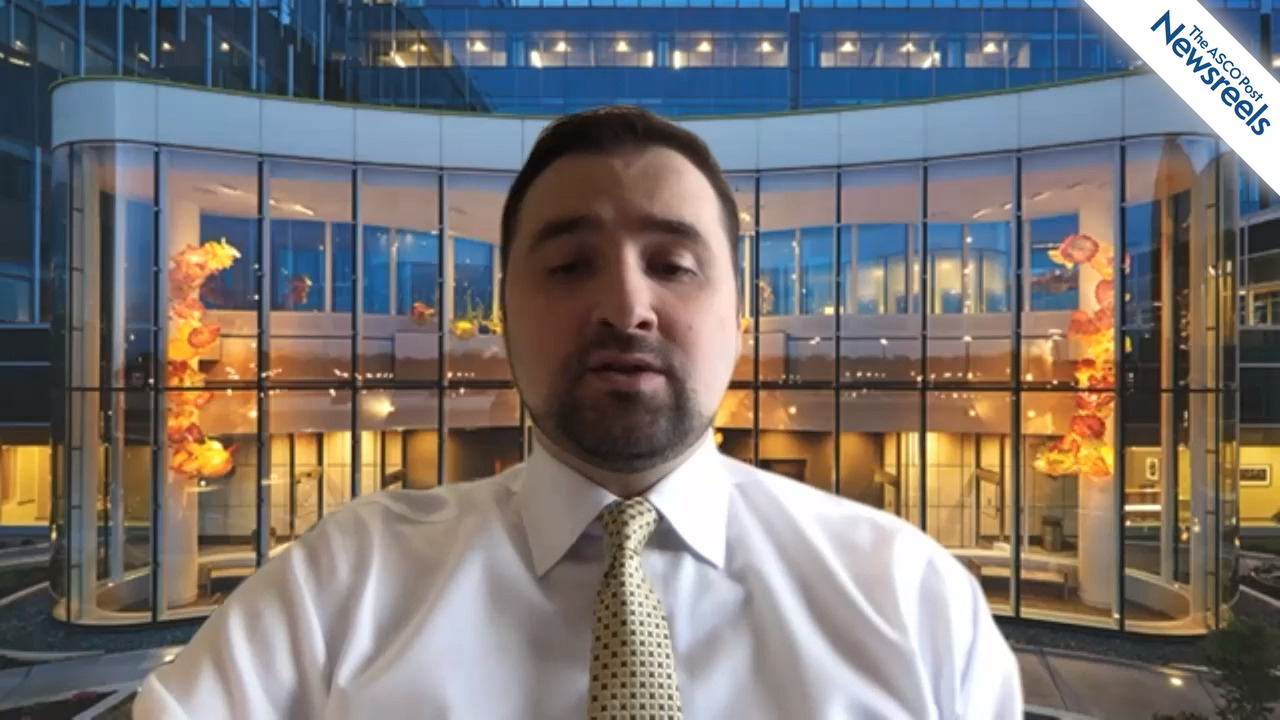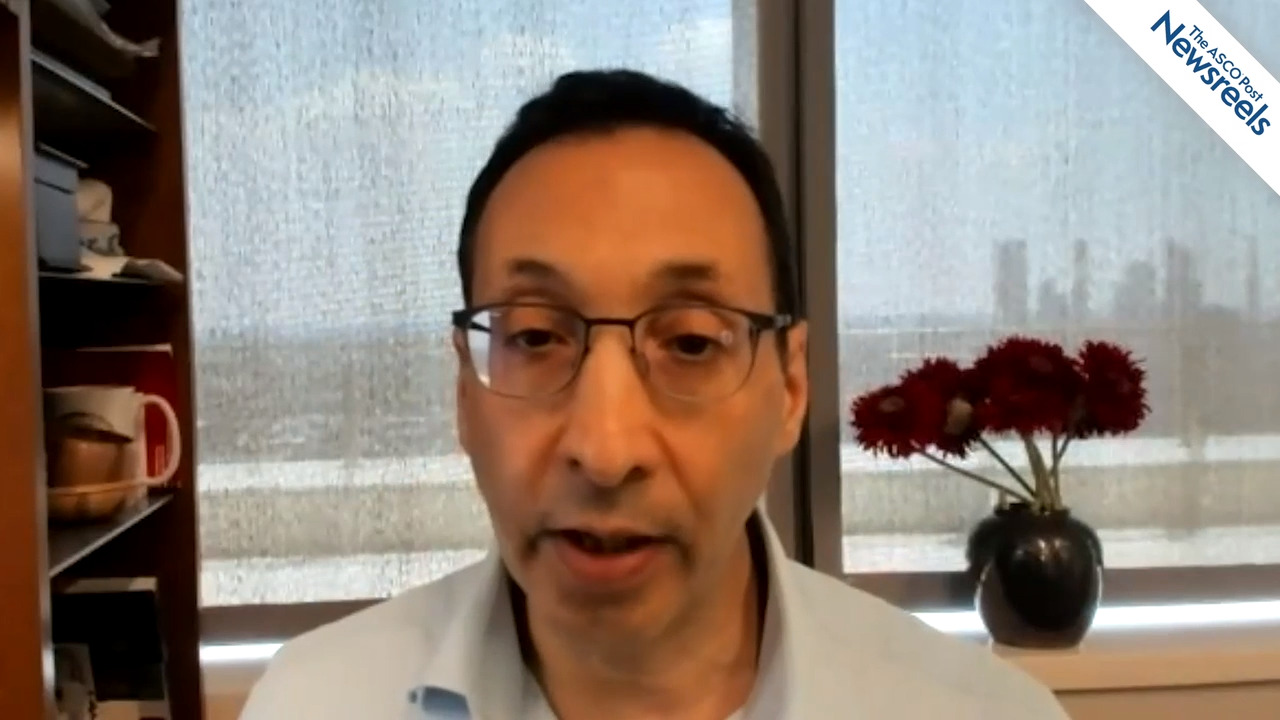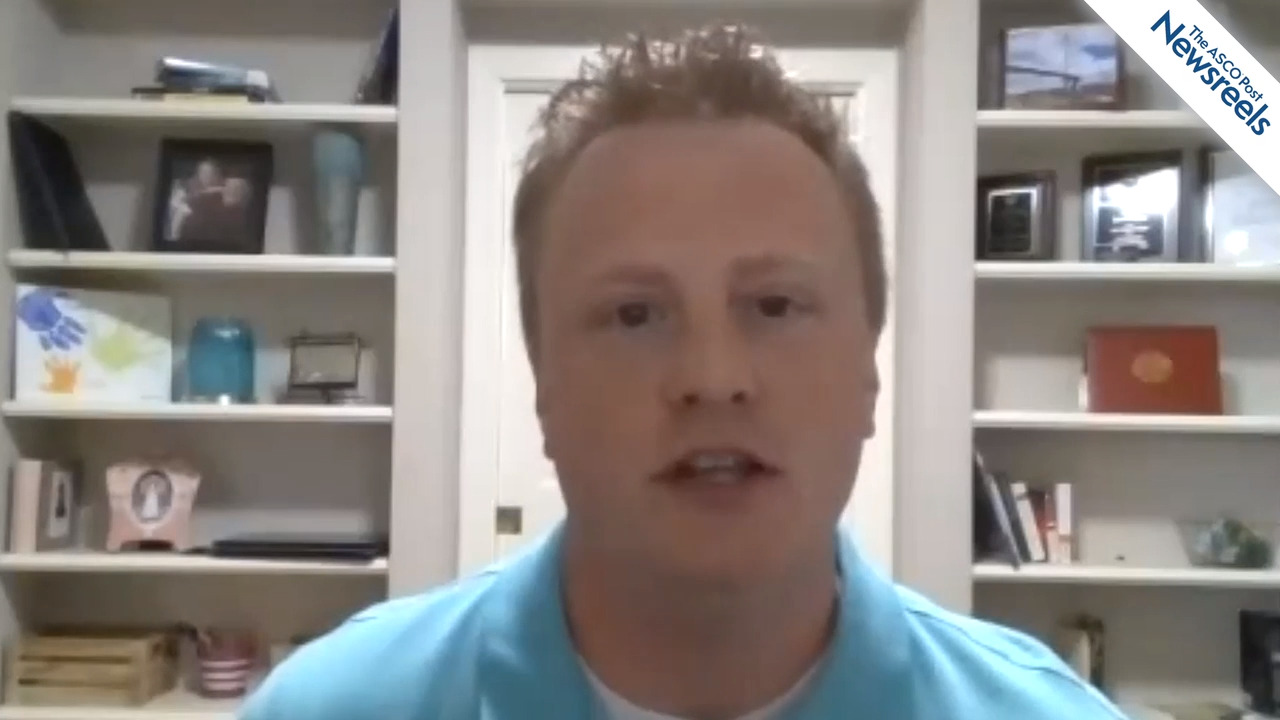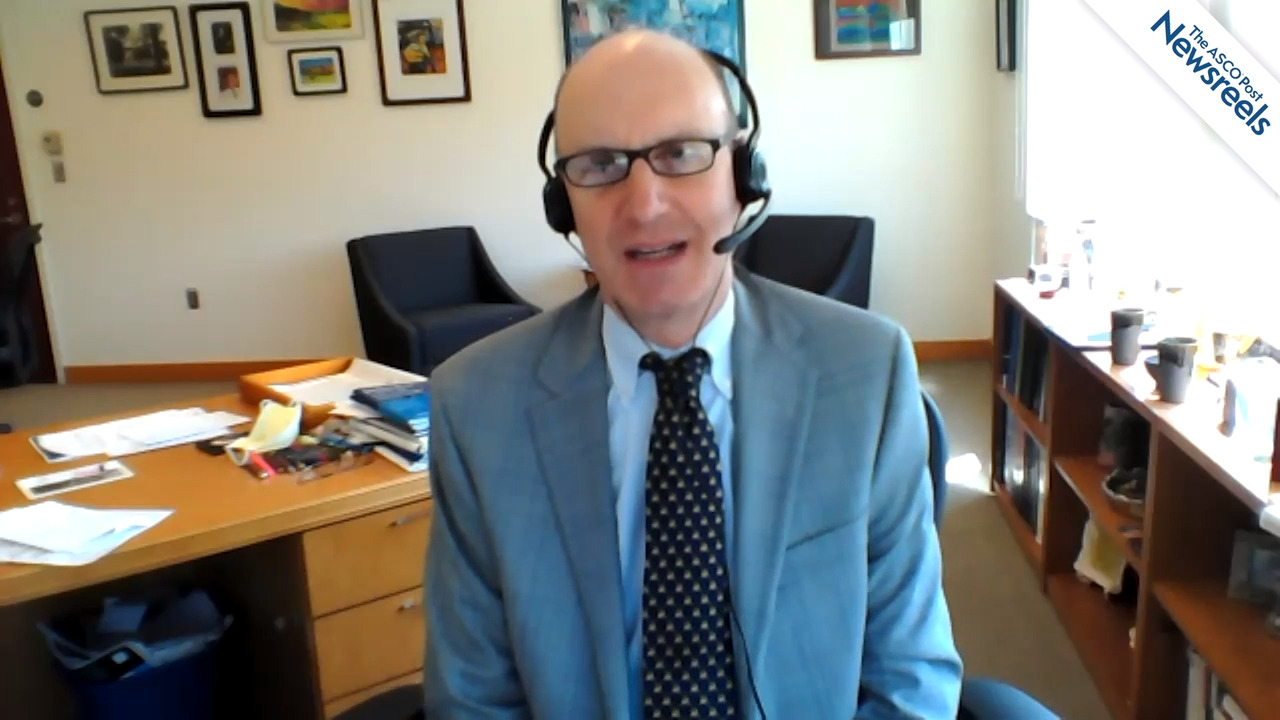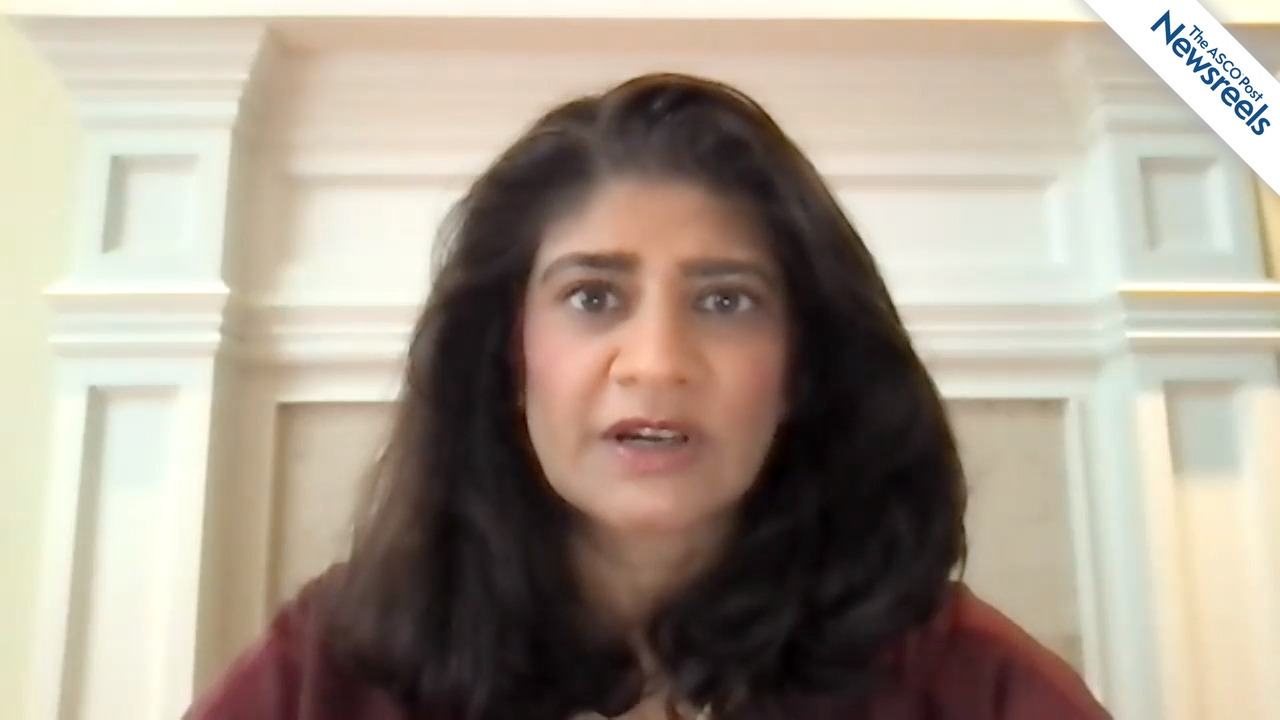Related Videos
Muhamed Baljevic, MD, on Multiple Myeloma: Review of Novel Management Strategies
Muhamed Baljevic, MD, of the University of Nebraska Medical Center, reviews the outlook for treating patients with relapsed and refractory multiple myeloma, the rapidly expanding array of therapeutic options with novel mechanisms of action, and the challenges of sequencing treatments.
Steven M. Horwitz, MD, on Advanced-Stage Mycosis Fungoides and Sezary Syndrome: Update on Management Practices
Steven M. Horwitz, MD, of Memorial Sloan Kettering Cancer Center, discusses treatments for advanced mycosis fungoides and Sezary syndrome, including brentuximab vedotin and mogamulizumab, and how best to choose among treatments.
Jared E. Matya, PharmD, BCOP, on Supportive Therapies for Side Effects Related to Novel Oral Treatments
Jared E. Matya, PharmD, BCOP, of Nebraska Medicine, discusses oral agents and their toxicity profiles, as well as newer-generation agents that are often more selective and better tolerated. He describes how toxicity monitoring and management help to ensure patients with cancer remain on treatment.
Jonathan W. Friedberg, MD, on Managing Indolent NHL With Oral Therapies
Jonathan W. Friedberg, MD, of the University of Rochester Medical Center, discusses treatment options for follicular lymphoma, focusing on the combination of lenalidomide and rituximab and why he uses that regimen for first relapse but not front-line therapy.
Sonali M. Smith, MD: Can CNS Prophylaxis Prevent Secondary High-Grade B-Cell Lymphomas?
Sonali M. Smith, MD, of the University of Chicago, discusses the many uncertainties in preventing secondary high-grade B-cell lymphomas, which have a poor prognosis; how to discern the patients at highest risk; and whether prophylaxis with monoclonal antibodies such as rituximab can mitigate the likelihood of secondary lymphoma.
